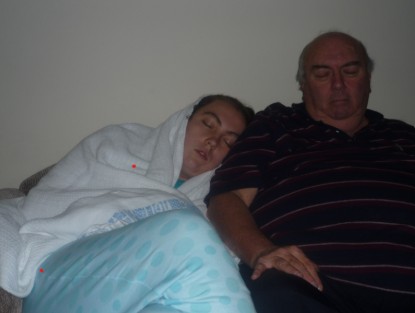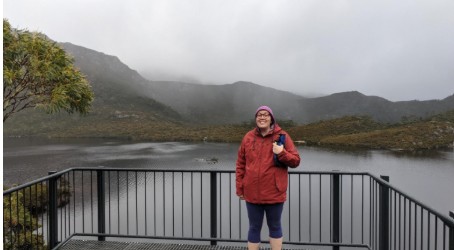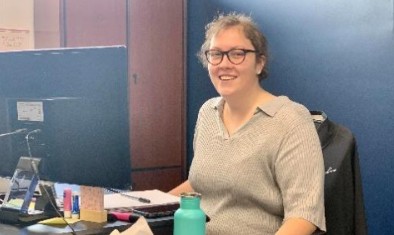Being told I needed to create a will and enduring guardianship agreement was a conversation I never expected to have when I was 19 years old. But it was my reality after being diagnosed with gradea description of how abnormal cancer cells and tissue look under a microscope when compared to healthy cells 2 astrocytoma, an invasive brain tumoura tissue mass that forms from groups of unhealthy cells. My doctors said I had six months to live.
When a trip to Europe turns into urgent brain surgerytreatment involving removal of cancerous tissue and/or tumours and a margin of healthy tissue around it to reduce recurrence
I was 16 years old when I was found on the ground by my father after fainting and hitting my head. I was sent to the Emergency Department where they told my parents that I had fainted due to my extremely low iron levels. We went home happy with this explanation, and a prescription for iron tablets.
The fainting continued. It became a weekly occurrence until three years later, at 19 years old, I was preparing for my first solo trip to Europe when I fainted again and hit my head so hard that I didn’t wake up until my dad flew up the stairs to help me.
The next day my parents took me to our GP. She told me she didn’t think there was anything to worry about, but that she would send me for an MRI just as a precaution. It’s after this moment that everything becomes a bit of a blur.

The next day the GP sat us down and said “I have some hard news for you.” I honestly don’t remember much from there, except being told that I needed to have urgent brain surgery.
From there everything happened so fast.
I saw the Neurosurgeon the next day and the next thing I knew I was having surgery, waking up in a hospital bed, and being told to go home and make memories with my family – they told my parents I only had six months left to live.
I had a six-week break from hospital and began radiation therapya treatment that uses controlled doses of radiation to damage or kill cancer cells.
The whole experience made me feel so lost and confused. I was craving someone else to speak to who understood brain cancera disease where abnormal cells split without control and spread to other nearby body tissue and/or organs, and I wanted my parents to have more support as carers.
Finding hope
At that time, it was a very tiring and mentally exhausting experience. I was bombarded with negativity about my diagnosisthe process of identifying a disease based on signs and symptoms, patient history and medical test results. Despite this, I clung to hope – I was always hoping that I would be the exception to all the statistics I was reading about in textbooks.
While it was hard to stay positive, the support from my family and friends was amazing. I’m especially grateful for my parents, who I wouldn’t be here without.
Talking through my diagnosis with my Neurosurgeon, who would speak to me about having a future, was also extremely helpful. No other clinician provided me with that hope, which really takes a mental toll.
During my cancer journeywhat a person experiences/lives from the time they think they have cancer, I learnt a lot about research, and the appropriate sources to utilise especially when investigating your cancer type. I began reading and becoming the expert in my cancer and the different treatments out there. I wanted to take the control back, which you can sometimes feel you have lost.

Walking with others affected by cancer
Today, 10 years on, my cancer is currently stable. I will never be in remissiona reduction or absence of symptoms in disease, can be partial or complete as the cancer will always be in my system but I am well. I am also a qualified Social Worker and Specialist Cancer Navigator with the amazing Patient Support Team at Rare Cancers Australia.
My role is to provide guidance to people living with cancer and their families. Their experiences are often complex and challenging. I help answer any questions they may have while walking the journey they are going along with them.
This role is so important. Every person affected by cancer should have someone there to help them navigate their journey and options.
For me, it’s a cause close to my heart – you realise how much advocacy is an important aspect of cancer care once you have been there yourself. I know if I had someone who could talk to the whole family and provide that extra empathetic ear and much-needed advice it would have made my cancer experience much easier.
Just like any job, there are challenges and rewards. The most difficult part of my role is working to address the many gaps there are for cancer care providers in rural and remote communities within Australia. Every person deserves access to the best possible care.
The most rewarding aspect of my role is being able to help people living with cancer and their families. Simple, but it’s why I am here doing what I do.
I’ll never forget the moment I received a lovely comment from the carer of someone I had been supporting to access genetic testinga procedure that analyses DNA to identify changes in genes, chromosomes and proteins, which can be used to analyse tumour DNA to help determine which treatment has the greatest chance of success for their tumour. The patient sadly passed away before the genetic testing could take place. But the family were so happy that they were given hope by learning about another option that they had no idea existed. It’s these moments and these families that will stay with me forever.
